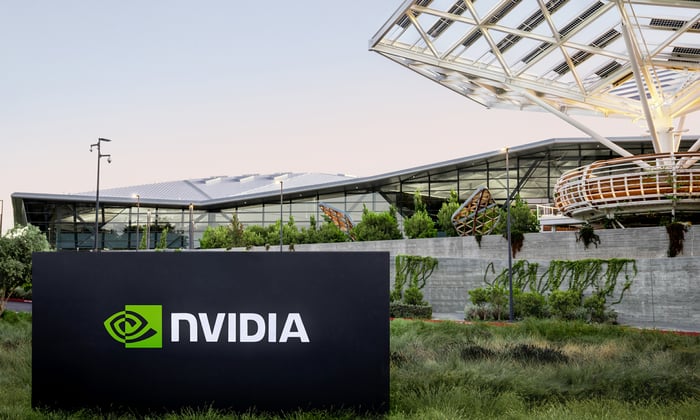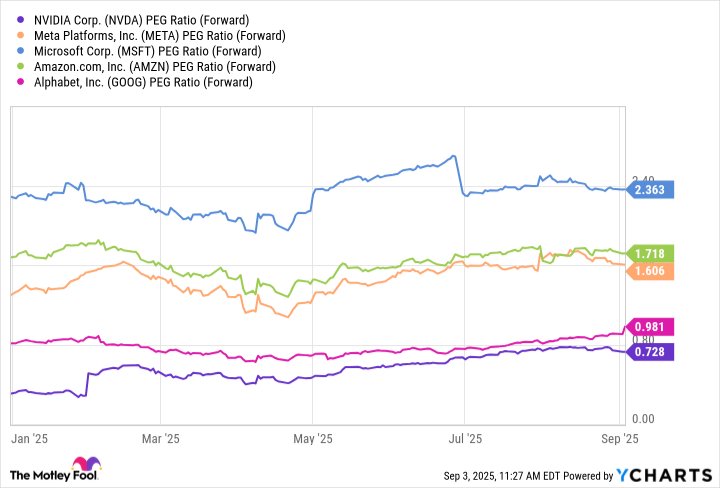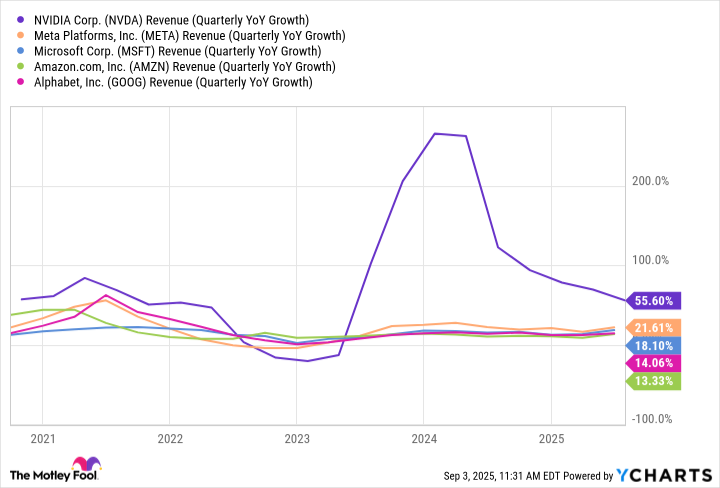Nvidia (NVDA -2.78%) is the largest company in the world by market cap and one of the most hotly debated. Can it still grow higher at its current levels? Is the artificial intelligence (AI) market overhyped? Is competition coming? And perhaps one of the most popular debate topics: Is Nvidia stock a good value?
Let's take a look at why it may not be as expensive as you think.
The key to generative AI
First, let's get one thing out of the way: Considering Nvidia's dominant market position and impressive growth, the stock does deserve some kind of premium. So, even if it does look expensive at first glance, there are good reasons for that.
But let's consider some other factors. Both sales and earnings are growing at high rates, which is why the stock continues to climb while carrying an already high valuation. In other words, its growth isn't necessarily fully priced into the stock.

Image source: Nvidia.
That said, Nvidia does trade at a high price-to-earnings (P/E) ratio of 49 as of this writing, about twice the S&P 500 average. But consider its price/earnings-to-growth (PEG) ratio, which normalizes its valuation against its earnings growth rate. Below, you can see how Nvidia's PEG ratio compares favorably to the market's other largest companies, including Microsoft, Apple, Amazon, Alphabet, and Meta Platforms:
Data by YCharts.
Nvidia also trades at a rich price-to-sales (P/S) ratio of 26, but it's growing revenue much faster than these same peers as well:
Data by YCharts.
That's why any valuation needs to be taken in context. Nvidia might be starting to slow down, and the market wasn't thrilled with its guidance for revenue growth of about 54% in the current quarter. However, that's still far above its peers, which partially explains the premium for the stock.






